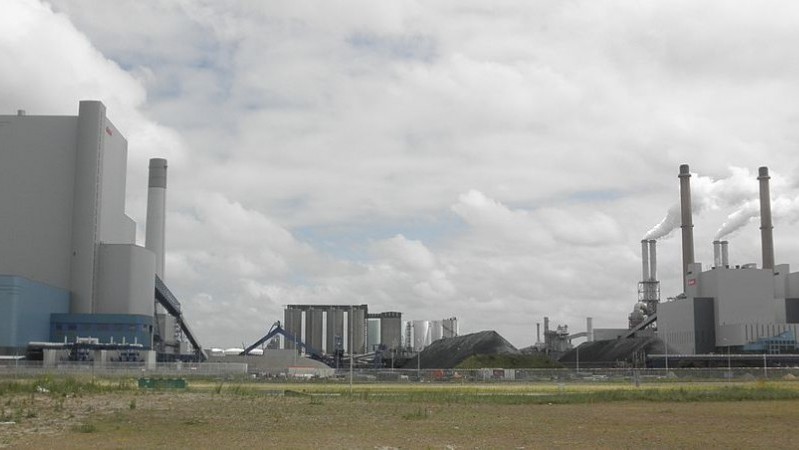The Dutch government could avoid setting tough new climate policies thanks to carbon accounting changes.
Ordered by a court to cut greenhouse gas emissions 25% from 1990 levels by 2020, the authorities were under pressure to close new coal power plants.
In a convenient twist for reluctant ministers, the latest national energy outlook shows that target is much closer than previously thought. The official emissions forecast for 2020 is now a 23% cut, up from 17% a year ago.
Economics minister Henk Kamp claimed in a statement this showed the success of a 2013 energy agreement, which predates the landmark court ruling. An official response to the Urgenda case is due out in late November.
Green groups maintain that stronger action is needed to meet the spirit of the court judgment – and ambition of the UN climate deal struck in Paris.
Report: Climate campaigners win court case against Dutch government
The new numbers owe more to methodological tweaks than carbon-cutting initiatives, lead analyst Michael Hekkenberg explained on the Energy Research Centre of the Netherlands website.
Under the latest Intergovernmental Panel on Climate Change guidelines on methane’s global warming potential, the 1990 baseline emissions have been revised up. “This revision is obviously not good news for the climate,” Hekkenberg stressed.
Meanwhile, the forecast 2020 emissions have been revised down, but largely due to shifting assumptions about renewable power imports and declining energy demand.
To keep the same level of absolute emissions cuts, Hekkenberg said the 25% target translated to 28%.
Marjan Minnesma, head of Urgenda, which brought the lawsuit with nearly 900 citizens, told Climate Home they would keep pushing for higher ambition.
The government is appealing against the ruling and Urgenda is due to submit its arguments in defence of the original decision this January.
“We are still in court, so we can also bring new things on the table, which might change the figures,” said Minnesma. “There is no reason to be optimistic for our government.”
On the line are three coal plants opened in 2014 and 2015. Closing at least one of these power stations would be the cheapest way to meet the 2020 target, according to analysis from CE Delft before the new figures came out.
Economics minister Henk Kamp swiftly rebuffed that verdict. “They are the cleanest [coal plants] in Europe, we’d be crazy if we shut them,” he told Dutch television last month.
The plant’s operators have indicated they would sue for compensation if forced to shut down. Ironically, their closure would also dent the country’s renewable energy statistics, as they partly run on biomass.
Geert Warringa, author of the CE Delft analysis, which was commissioned by the European Climate Foundation and Eneco, said these plant closures might no longer be necessary.
The latest numbers suggest the government need only find cuts of 6 million tonnes CO2 in 2020, not the 7-10Mt his research was based on.
“If the gap is only 6Mt, then it is questionable if a new coal-fired plant should close down to meet it,” Warringa told Climate Home. “On the other hand, there are still large uncertainty boundaries around those new estimates.”
